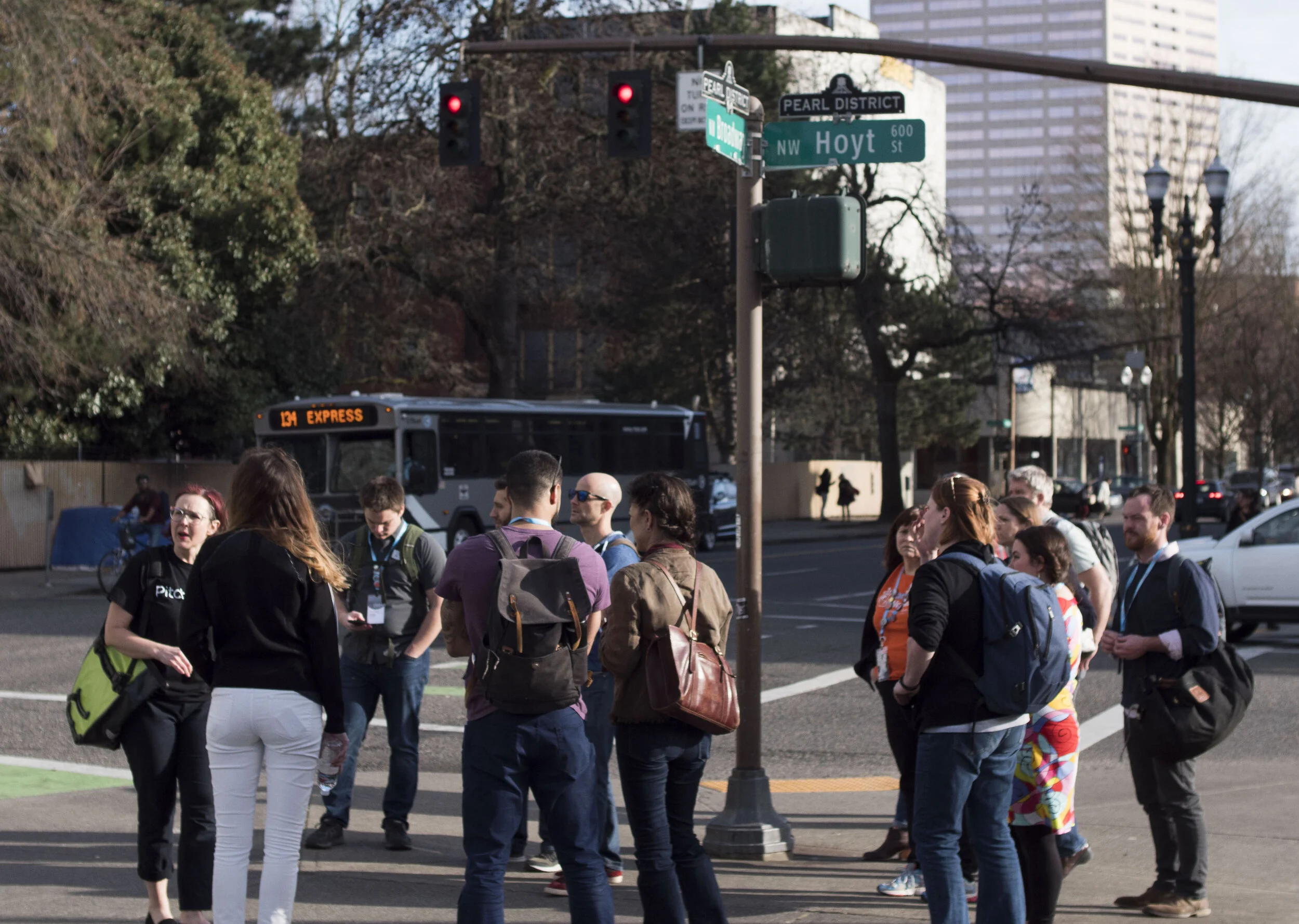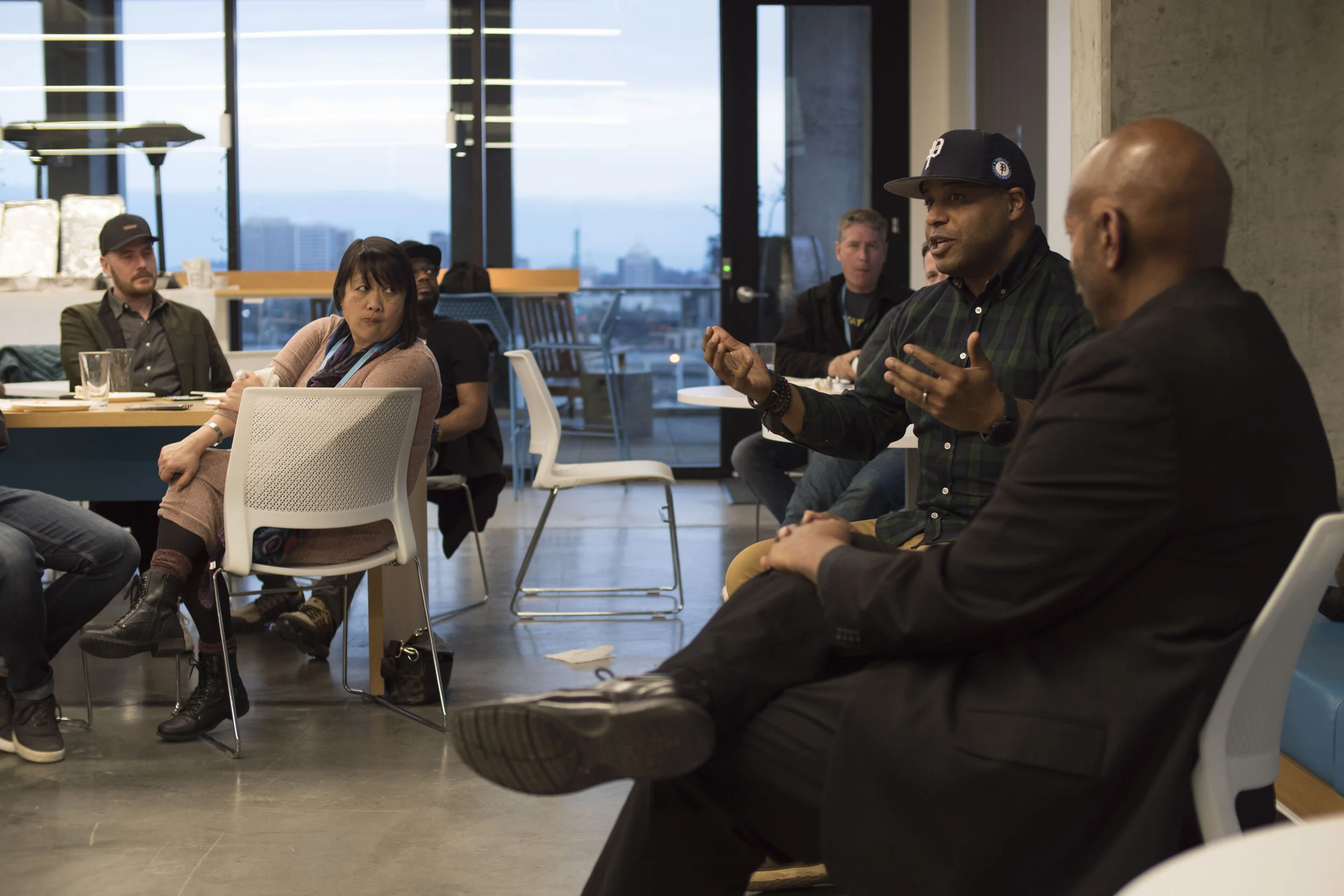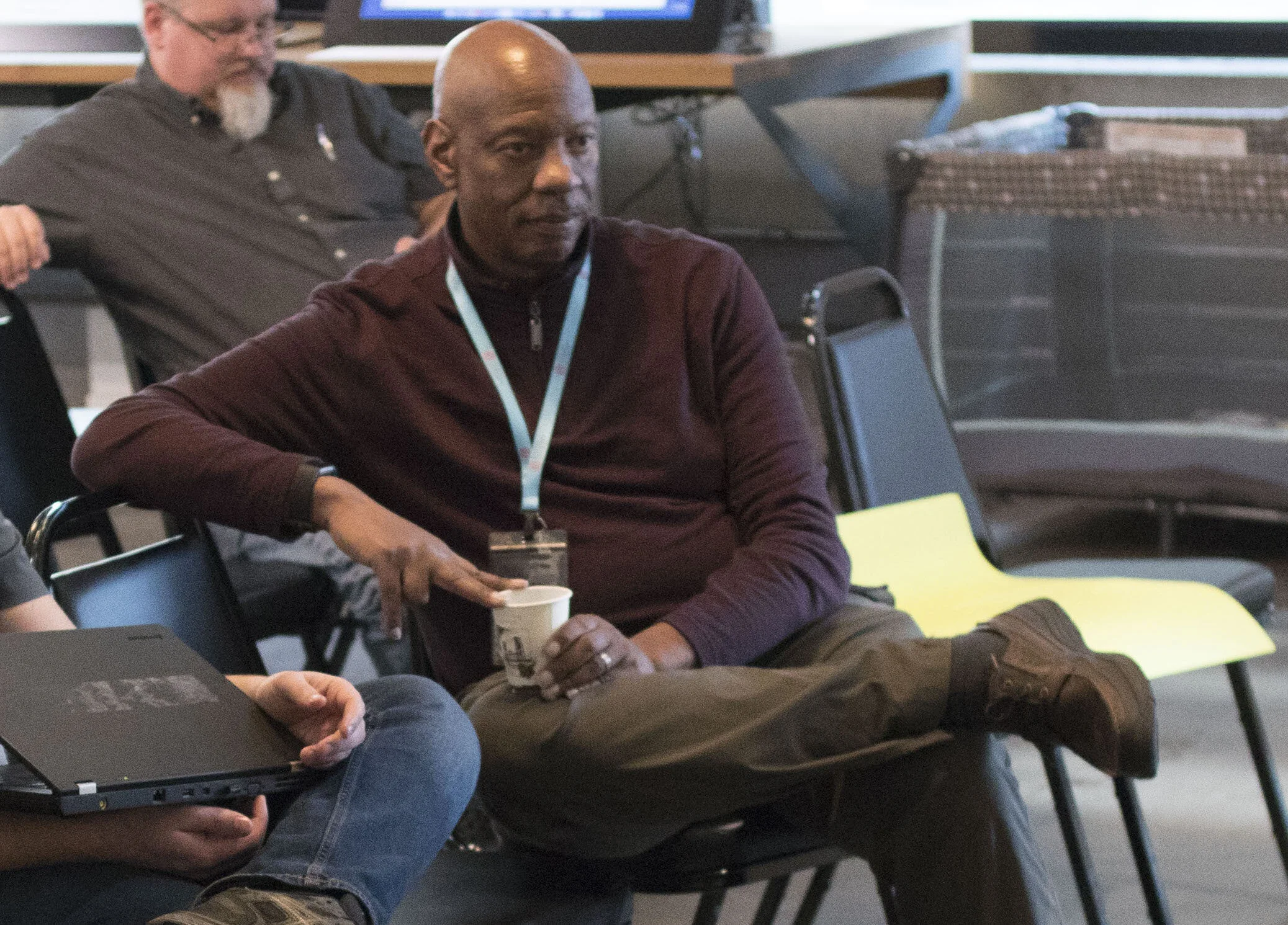Lessons from Portland That Have Nothing to do With Wielding Black Lives Matter Signs
Tension has been rising in communities across the country in response to the police killings of George Floyd, Breeona Taylor, and Amhaud Arbery. The outrage and response has led to months of unrest, protests, and conscious raising in a variety of ways. Across the country we’ve seen massive uprisings, social media outrage, and bold and beautiful displays of solidarity.
There’s a lot of work to be done to bring equity to our ecosystems. For a lot of ecosystem builders, having those DEI conversations with stakeholders in the community has been difficult.
Until now.
As the Black Lives Matter movement becomes more mainstream, we are seeing the consciousness around diversity, inclusion, and equity raised. Conversations about privilege are happening within our inner circles and our social media news feeds, and racism is being called out in ways we’ve never seen before.
Portland has gained National attention because of its protests, but what we’re shown and what is actually happening are very different narratives. In fact, much of what gets reported happens within a few blocks within the city limits. And, if you’re a Portlander who carries privilege or just wants to put your head in the sand, it’s easy to pretend like it’s not happening.
Portland: The Whitest City in America
In 2018, U.S. Census data reported that Portland’s population was 71 percent white, earning the city its nickname, “The whitest city in America.” Portland’s lack of diversity is also why employers have a hard time attracting and keeping minority talent. In fact, according to a study released this year by Partners in Diversity, 74% of professionals of color interview reported experiencing discrimination at work.
Portland's history of segregation and discrimination has meant the gentrification of Black neighborhoods and no centralized Black business community. That makes it hard for the type of connection and cultural community building that needs to happen, and when there’s a lack of community or opportunity to connect with individuals who share similar backgrounds or issues, it makes it hard to want to stay.
That doesn’t mean Portland has a lack of successful, Black owned businesses. BlackPDX is a directory meant to help Portlanders find the Black businesses in the city and to present another narrative - a positive side to the gentrification stories that are written frequently about Portland.
What’s Going on in Portland?
“Portland loves to have a BLM sign but doesn’t always do things that show that Black lives actually matters.”
- Stephen Green
In the midst of #BlackLivesMatter, #BlackOutTuesday, #BlackBusinessMonth, and #BlackAugust, what has really changed? We interviewed three ecosystem builders in Portland to find out what’s happening within the progressive but not so diverse city that has had some of the longest, most active Black Lives Matter protests.
Dwayne Johnson, President at Globe Three Ventures says the conversations are happening but the action is not.
“There’s a strong solidarity movement for Black Lives Matter,” Dwayne says. “People are definitely more conscious and recognizing their privilege.”
Dwayne gives an example of an organization in Portland with an all white staff who hired white consultants to help with economic development in Black and Brown communities.
“What I want to see is folks involving Black people in the economic recovery strategy. A big problem is that it’s no one’s job to make sure that’s happening,” Dwayne says.
For Marquita Jaramillo, Program Manager of PIE, it’s too early to say change is happening. “I’m reluctant to say I have seen change because I'm newer to the ecosystem. I know there have been conversations but little action that follows. I think I’m in more of a watch and see mode. People are doing things now, but how long will that last?”
According to Stephen Green, Director of Operations at PENSOLE Footwear and Founder of I Will Do More, “People have definitely found some discomfort who haven’t found discomfort before. They want that discomfort to go away or have gotten to a point where they are more aware that sitting on the sidelines and not just using the N word isn’t the same as supporting people and advocating and being an accomplice.”
Preparing for the long haul
Lots of companies posted the Blackout box, created statements around their commitment to equity and inclusion, signed diversity pledges, and did all the performative and reactionary things you would expect a company to do when they feel they are under fire.
“A lot of companies found themselves unprepared for this. People are just interested in making it go away because they are uncomfortable. They haven’t put in the real work and are looking for bandaids to put on top of the problem,” says Stephen.
He’s right. You can’t just go hire a bunch of people to diversify your company, check the box and call it a day. He points out that when your work is built on a racist structure where racism is alive and well, you’re just bringing people into a bad environment. It doesn’t fix anything. You have to do the work.
Engagement and relationship building are important for Marquita. “Relationship building for corporations and the organizations they want to to work with will look very different. I feel like they're going to have to lean in more to the partnerships they want to create. And also actively engage. Not just throw some money at something. Do some volunteer work throughout the year. Sit on one of their boards. Give some input on programming. Continue those conversations that seem awkward,” says Marquita.
One of the performative actions that happened in Portland amidst the uprisings was the creation of the “Tech Town Pledge.” Thirty Portland tech companies pledged to create a “more inclusive tech community in Portland.” The problem with the pledge, however, is that it has no structure and no accountability. So Stephen Green set out to create an entity that had both structure and accountability. He, along with Juan Barraza, Rick Turoczy (SCN member and Portland Summit host), and Mitch Daugherty created an initiative called Do. Do More. Do Better. It’s a framework to help employees hold their companies accountable and a toolkit for people who want to know how to start doing DEI work.
“A lot of the conversations I’ve been part of I’ve found that the intentions are there but they don’t know where to start or feel like they can’t do anything because they aren’t on the leadership team. So I started this effort pointed towards a bottom up shift into how we change the experiences and outcomes for Black folks working in organizations and companies here in Portland,” explains Stephen.
Stephen has also been very vocal on Twitter calling out businesses who made a pledge and have yet to actually do any work.
Doing the work
So what does doing the work look like? It looks like analyzing your company’s culture and structure. It’s asking tough questions about experiences and perspectives. Stephen says there’s four legs to the stool: Awareness, analysis, action, and accountability.
“Most folks don’t want to do all four of those. They want to take what little awareness they have and jump right into action and never do any analysis,” says Stephen.
Over at PIE, the work is ongoing. Marquita spends a lot of time listening to her entrepreneurs to learn what their needs are first. They’ve been fostering and growing their beloved community for years and believe in serving the whole entrepreneur rather than turning and burning cohort after cohort using the same roadmap. Marquita says the kind of inclusive, anti-racist work they’ve been doing at PIE has actually helped a lot of entrepreneurs figure out the environment they want to cultivate in their own company culture.
PIE founder and SCN member Rick Turoczy leading a tour of PIE during the 2018 SCN Fall Summit
“A lot of them are creating their companies in a very thoughtful way. They’re being very intentional in the things they’re doing and the products they’re putting out there and the kind of impact they’re working to make. They're putting in the necessary work to not only provide a supportive work culture but to weave diversity, equity, and inclusion practices into the foundation of what they're building.”
And that work is founded in building relationships, trust, and social capital.
For Stephen, the work includes doing the simple stuff. “I think far too often in this work. Particularly around ecosystem building. We talk about innovation. We talk about really complex things. We talk about systems change. But we forget that all of this is really rooted in trust building and relationships. And we miss out on doing the really simple stuff. If we’re not willing to take time to do the simple stuff, people are never going to trust us to do the complex stuff.”
What is the simple stuff? Spending money at Black businesses, hiring Black entrepreneurs for services (who is your lawyer, your banker, your marketing firm?), and rallying your city to do the same.
For Dwayne, success looks like developing and improving equity metrics. His company is currently working on a dashboard to help measure equity. Measuring impact is very important but rarely done. For Dwayne, measuring equity means looking at the following:
Hiring percentages
Dollars invested in small businesses of color
Retention rates within companies
Diversity of the workforce
Property ownership across the city
Measuring the percentage of people of color who own their houses
Analyzing rental rates among different communities
Credit card usage
Payday loan percentages
“I want to see numbers going up. You can start asking these questions without having the data at first. Then, work to figure out where or how to find it,” explains Dwayne.
Creating Equity in Portland
“Overall folks want absolution. They want the discomfort to end. It took us 400 years to get to where we are, it’s going to take more than a few months of protests to really bring about the change and the work that’s needed.”
So what HAS changed in Portland? Seeds are being planted and there are some great funding opportunities ahead. The “Do More. Do Better. Be Better” campaign has seen engagement from 400 folks at over 300 companies. PitchBlack, another initiative started by Stephen Green is about to be held virtually for the first time and will continue to give Black and/or Latinx startup entrepreneurs a platform to connect with the larger startup ecosystem, while also awarding them with cash prizes.
Oregon is the only state where there’s been money dedicated to the Black community. Reminagine Oregon, a organization Stephen is on the board of, has secured $2.5M to look at reimagining what police in the state of Oregon would look like. There’s also $62 Million from the Cares Act Funding that was secured by the Oregon Cares Fund that will be distributed to Black Oregonians. Stephen has been working on the financials for distributing this fund.
The uprisings have also made Black activists and ecosystem builders empowered to be unapologetic about their work.
“I do see promise. I see some great opportunities coming into play that could help move the needle. People have a really good opportunity right now to be intentional and unapologetic about the work they want to get done. I want them to know they are supported. There are allies out here that want to help you get those things done. We need all hands on deck,” says Marquita.
“We’re all out on bridges every night. They’re on physical bridges screaming, but I’m in boardrooms and conversations that a lot of folks don’t get the power to be in. If I’m silent, then that’s my bad. Watching what they’ve been able to do, going to protests myself, has really just emboldened me to find my voice and so I’m fully supportive of what they’re doing,” says Stephen.






